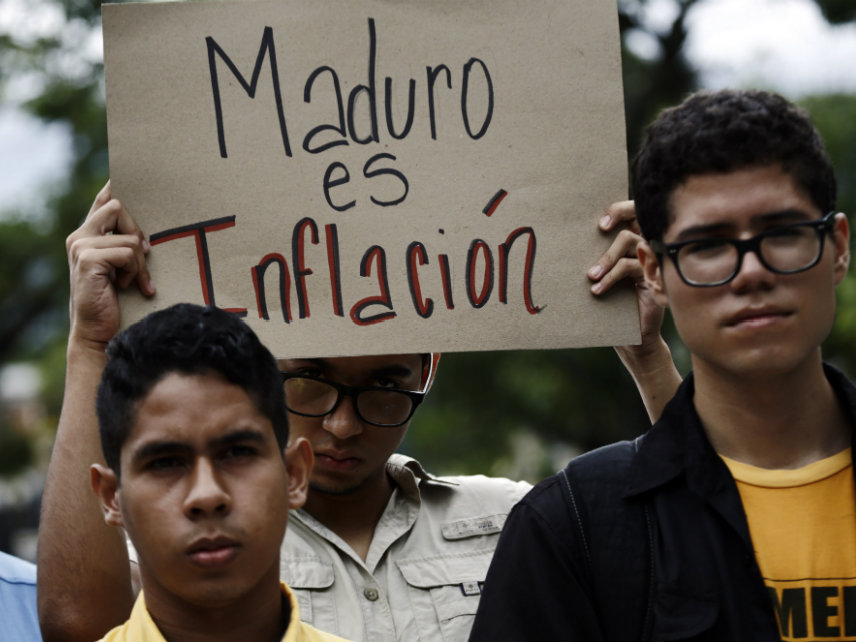Venezuela Slashes Zeros From Currency to Fight Inflation
Venezuela attempts to combat economic illiteracy with more economic illiteracy.

Venezuelan President Nicola Maduro took to television last week to announce his solution to the country's monetary woes: eliminating five zeros on all new Venezuelan bolivar bills.
Sure, that's an unorthodox—some might say useless—attempt to combat hyperinflation, but the great Venezuelan experiment with socialism continues apace.
At present, the highest denomination bill available is 100,000 bolivars. The new bills, set to hit the streets on August 20, will range from two to 500, with each unit representing 100,000 bolivars. To put that into perspective, as of last month, a cup of coffee in Venezuela cost 1 million bolivars. Maduro initially floated the idea of eliminating three zeros from bolivar bills in March, but didn't follow through—and four months later it's seemingly clear that hacking a mere three zeros off the currency won't solve anything. But five, ah, now you're getting somewhere.
Hyperinflation has been a consistent problem in socialist Venezuela. Maduro's predecessor, President Hugo Chavez, enacted a similar policy in 2008, eliminating three zeros from the national currency. It did little to fight the underlying causes of Venezuela's inflation. Instead of trying the same silly plan again, Maduro must address the underlying problems leading to Venezuela's inflation if he has any real intention of alleviating the problems facing his country.
With price and wage controls, and a largely centrally planned economy inherently incapable of meeting the needs of its populace despite being gifted with the largest oil reserves in the world, inflation in Venezuela is here to stay until people abandon the state-sponsored currency.
Already in some parts of Venezuela, many people have turned to Bitcoin, derided as highly unstable in the developed world, for an alternate store of value to the overabundant bolivar. As Matt O'Brien noted on Thursday in The Washington Post, the International Monetary Fund increased its end of year projections for Venezuelan inflation from 12,875 percent to 1 million percent in just a few short months.
On Tuesday, economist Daniel Mitchell examined the World Bank report that compared the Chilean and Venezuelan economies on his blog. Despite their similar histories and cultures, Chile abandoned the socialist experiment in 1973 while Venezuela embraced brutal economic collectivism 1999 under Chavez.
The differences are astonishing. Chile has been blessed with enormous economic growth and some of the highest standards of living in South America while Venezuela lags behind with what the IMF has described as one of the worst economic crises in the last 60 years.
Even as socialists in America assert that "Venezuela wasn't real socialism," the evidence to the contrary is clearer than ever. The number of zeros on the bolivar is a symptom; socialist central planning is the disease.


Show Comments (38)